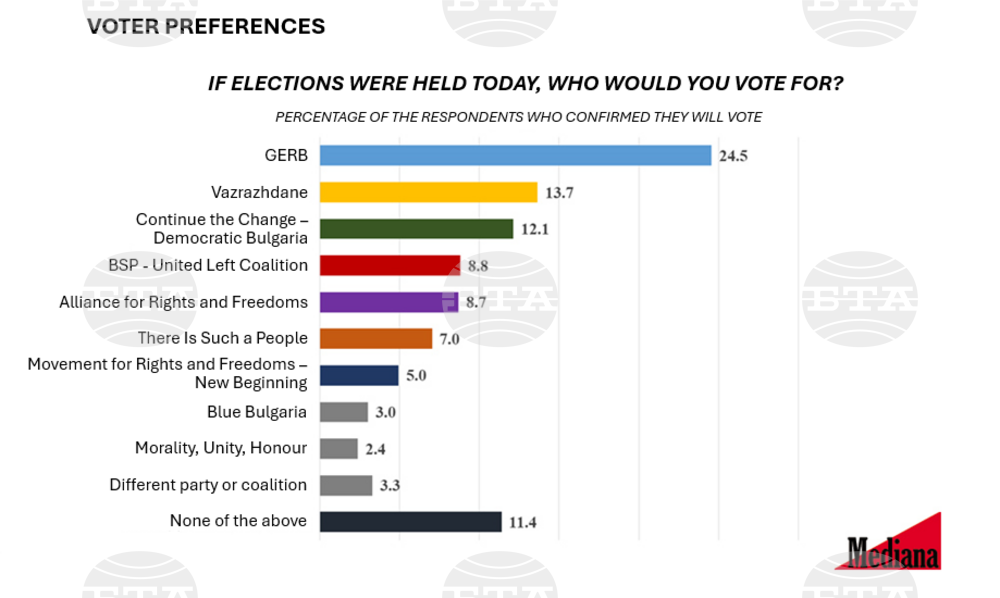site.btaAbout 30% of Electorate Likely to Cast Vote in Oct. 27 Elections, Lowest Turnout since 1989


Between 1.9 million and 2.1 million people or about 30% of those eligible to vote are expected to cast their vote in the upcoming parliamentary elections on October 27, according to a poll by Mediana, the polling agency reported. The poll, which was conducted among 978 adults between October 8 and 13, suggests that these elections may see the lowest voter turnout since democracy was introduced to the country back in 1989.
According to the survey, no party or coalition will be able to attract a majority of the votes. GERB-UDF, Vazrazhdane, BSP (Bulgarian Socialist Party) - United Left Coalition and There Is Such a People (TISP) will likely retain the results from the previous elections with barely any change, while Continue the Change - Democratic Bulgaria (CC-DB) suffer from lower confidence.
Nearly one in four or 24.5% said they will vote for the GERB-UDF Coalition, 13.7% expressed support for Vazrazhdane, 12.1% for CC-DB and 8.8% for BSP - United Left Coalition. The Movement for Rights and Freedoms (MRF), the runner-up in the last election, has since split in two, the Alliance for Rights and Freedoms Coalition and the MRF - New Beginning Coalition, which have the support of 8.7% and 5% of the electorate respectively. TISP will also likely enter Parliament with 7% of the votes.
The Velichie [Grandeur] Party has virtually disappeared from the political landscape with 0.7% of the vote. The two formations, Morality, Unity, Honour (MECh) Party and Blue Bulgaria Coalition, which are close to the 4% barrier, maintain their chances to enter Parliament mostly due to the low turnout. People who will vote None of the Above could form the third largest party with 11.4%, just behind the second, CC-DB.
Some 360,000 voters are still undecided, which against the backdrop of the extremely low turnout could be a huge share that could dramatically change the end result, however, none of the political formations appears to be able to attract them in a significant way.
There is a good chance that despite the low turnout, a three-party majority will be established to form a government. A potential problem may be the durability of such a majority and its legitimacy in the eyes of the huge mass of people who refused to cast a vote, Mediana said.
The possibility of forming a government could solve political crisis. It will not, however, solve the public's problem with perception and political representation. The majority of voters, 53%, do not believe that they actually choose and do not believe that their choice determines who and how governs the country, Mediana concluded.
Asked whether they believe a world war may erupt within one or two years, nearly half, 49% of the respondents, said yes, 25% said it is possible but unlikely, and 15% said a world war is unlikely to break out. For comparison, in 2022, 33% of the respondents said yes, 25% again said it is possible but unlikely, and nearly as many, 24%, said a world war was unlikely to break out.
/NZ/
news.modal.header
news.modal.text